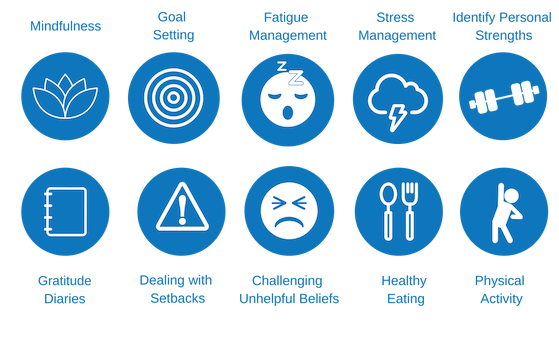By Professor Andy Turner
“To hope is to gamble. It’s to bet on your futures, on your desires, on the possibility that an open heart and uncertainty is better than gloom and safety. To hope is dangerous, and yet it is the opposite of fear, for to live is to risk.”
Rebecca Solnit, Hope in the Dark
An increase in the prevalence of mental health conditions is likely during, and after, the COVID-19 outbreak, and at risk groups included those with long-term, physical and mental health conditions, including cancer. Coventry University researchers and its spin out company, Hope 4 The Community CIC, have been working with Macmillan Cancer Support for a number of years to develop the self-management Hope Programme to help people living with cancer cope better with psychological demands of the cancer journey through diagnosis, treatment and survivorship. The COVID-19 outbreak accelerated the need to scale up the provision of the digital version of the Hope Programme. This urgent need for digital support was described by Debbie Smith, Macmillan Cancer Information and Support Centre Manager at Wythenshawe Hospital:
“COVID -19 has impacted on people affected by cancer, and it has stopped our face to face support within the Macmillan centre. The tools the Hope Programme offers would have vanished for at least 6 months without the online version. It is crucial that it is accessible to all to enable a sense of stability and focus in difficult times”
In the last few weeks, Macmillan Cancer Support have recruited over 300 people living with cancer to the Hope Programme. The first six week course finished this week. Many more courses are running or are scheduled to run over the next few weeks. Over half (53%) of the participants started the course clinically anxious. When we ran the course last year only 43% were clinically anxious. So it appears that COVID-19 is adding to anxiety levels. This is perhaps not surprising, given that cancer surgery and treatment has been put on hold for many cancer patients, adding to their psychological burden. This is reflected in the feedback one of the participants gave for joining the Hope Programme
“I joined the Hope Programme to try and remain positive and optimistic whilst having secondary breast cancer and living through the necessary restrictions of corona virus and delayed treatment.”
What’s on Hope Programme?
The Hope Programme is underpinned by positive psychology and cognitive behavioural therapy and aims to improve the knowledge, skills and confidence of people living with cancer to self-manage their health.
The Hope Programme covers a lot of things to help people self-manage their health and wellbeing whilst staying at home. COVID-19 specific advice and support includes avoiding exposure to excessive media coverage and seek information from reputable government sources. The course also encourages participants to focus on the things that are under their control and accept those things that are beyond their control. Participants are also encouraged to treat themselves with compassion and to remain hopeful!
The topics are covered over six sessions.

We recently published a paper showing that the digital Hope Programme helps 31% and 29% of people living with cancer to recover from anxiety and depression respectively.* We are conducting a feasibility randomised controlled trial of Hope Programme for cancer survivors during COVID-19 lockdown and hope to publish the findings in August this year.
This is what participants said about the course that just finished:
“Such a worthwhile investment in time. I have taken so much away from this course and honestly do feel I am in a better place than I was six weeks ago. I still have a long way to go, but I have a better understanding of why I feel the way I do and now I have the toolkit to help reframe that into something more positive.”
“I achieved many things, but I think the most helpful one had been to be kinder to myself. Stress less, take things less seriously and enjoy life a bit more.”
For more information about the research contact: Professor Andy Turner, Centre For Intelligent Healthcare, a.turner@coventry.ac.uk.
The Hope Programme for people living with Cancer in partnership with Macmillan Cancer Support is available on a range of dates. Sign-up here
Would the Hope Programme benefit your organisation?
We have developed a self-directed version of the Hope Programme for people living with any long-term condition which will enable organisations to provide online support to thousands of their clients. If you are an organisation who would like to refer a full cohort of people onto a course or have Hope tailored to your needs, please get in touch.
* Martin F, Wright H, Moody L, Whiteman B, McGillion M, Clyne W, Pearce G, Turner A. Development and Evaluation of a Digital Self-Management Programme: iHOPE for Cancer Survivors. J Med Internet Res. 2020 Mar 21. https://www.ncbi.nlm.nih.gov/pubmed/32209529 [Epub ahead of print]




Comments are disabled